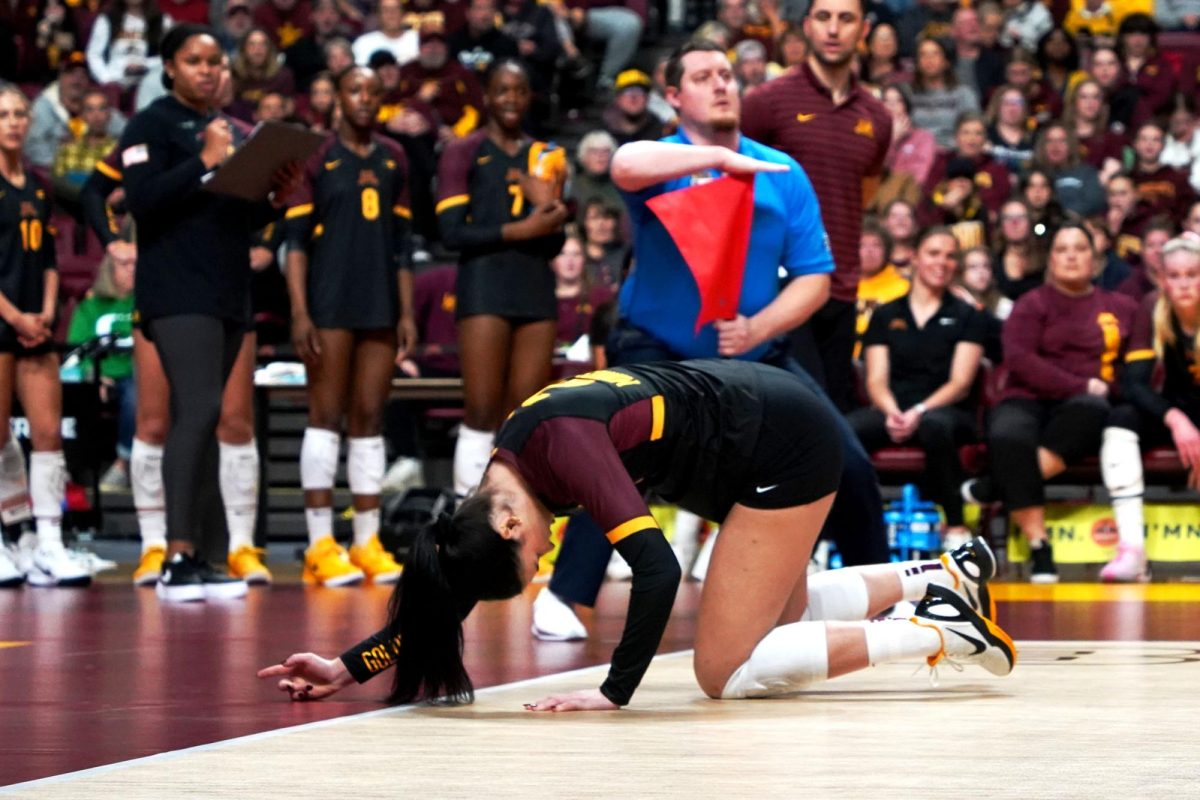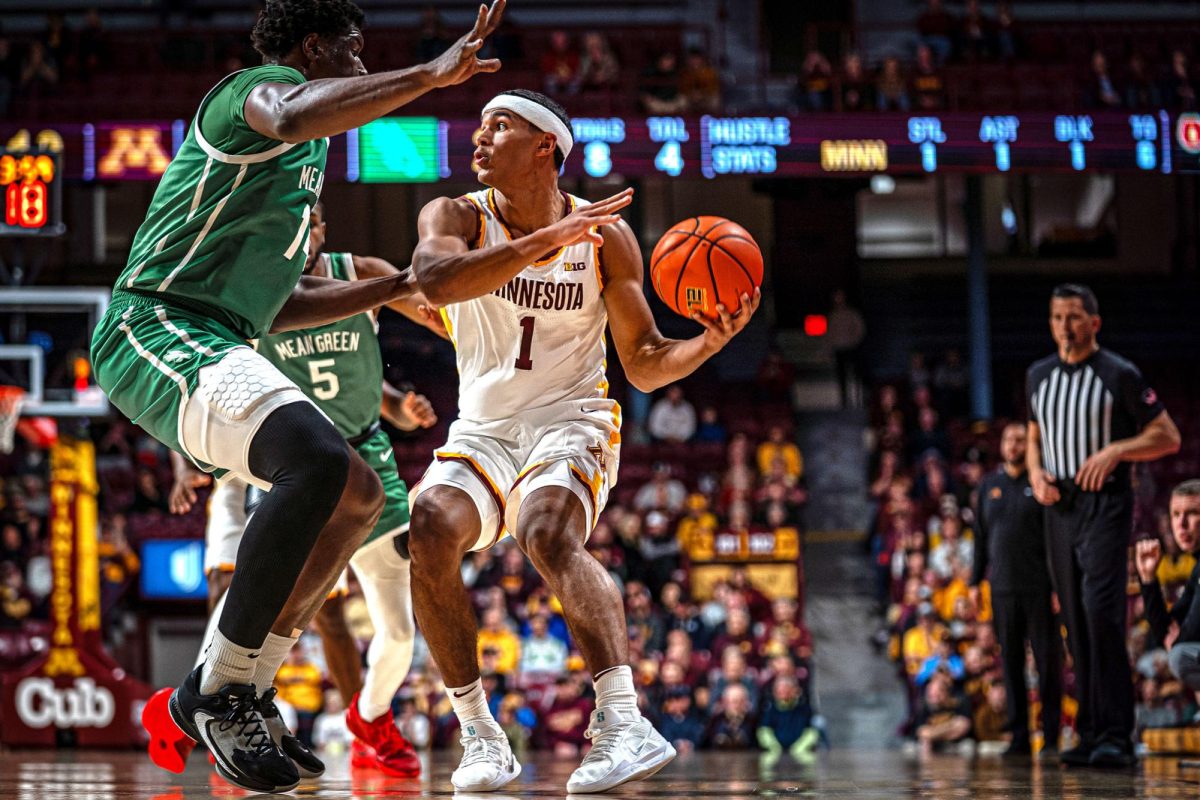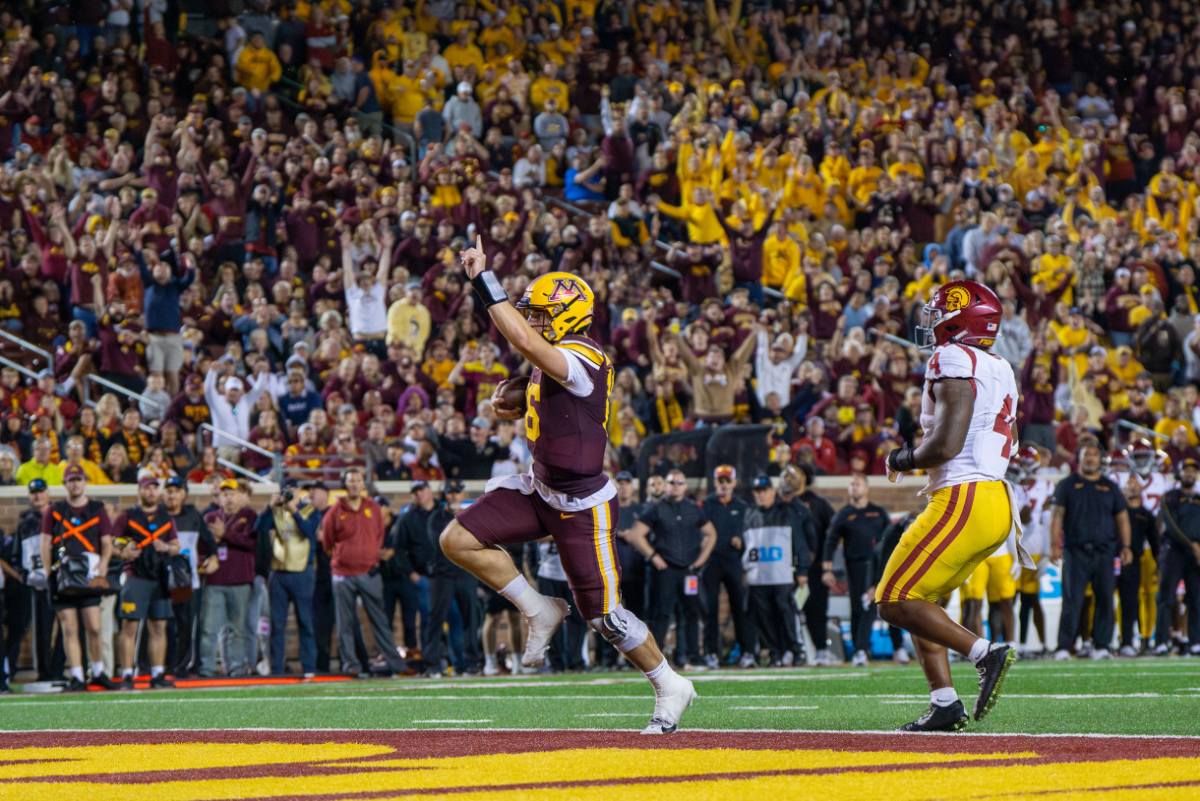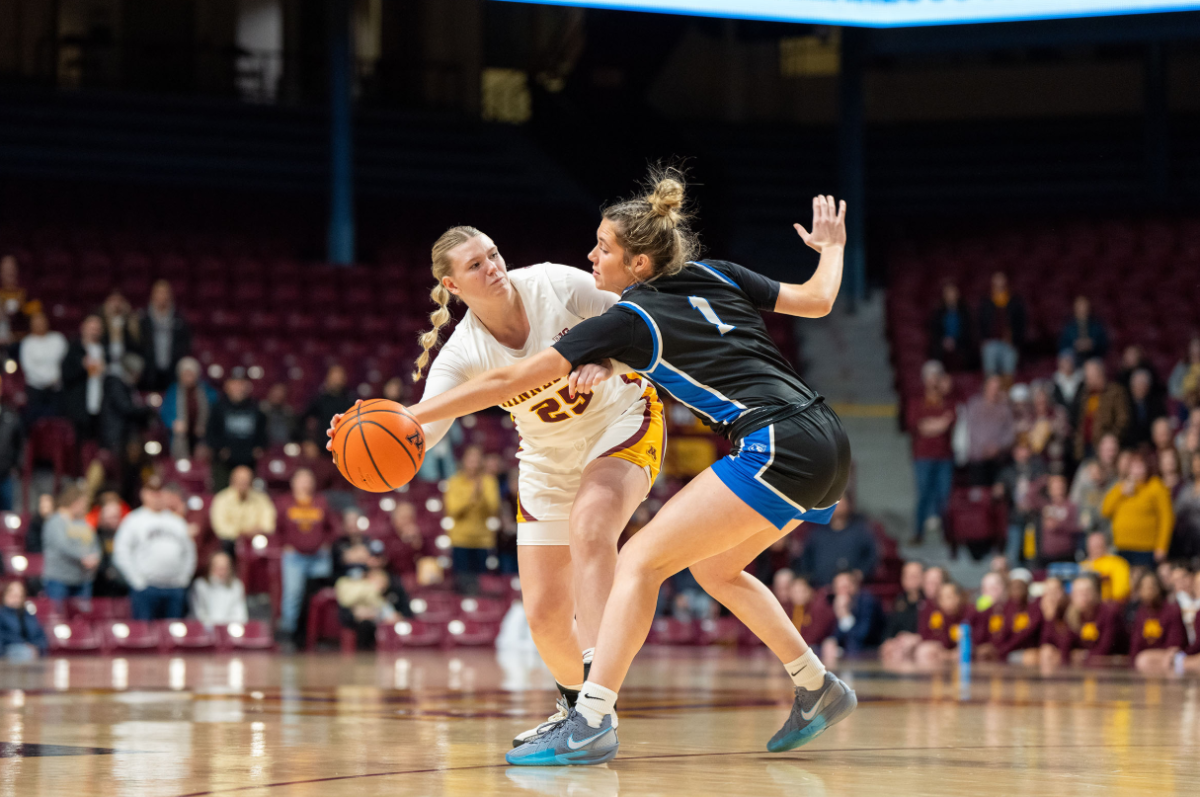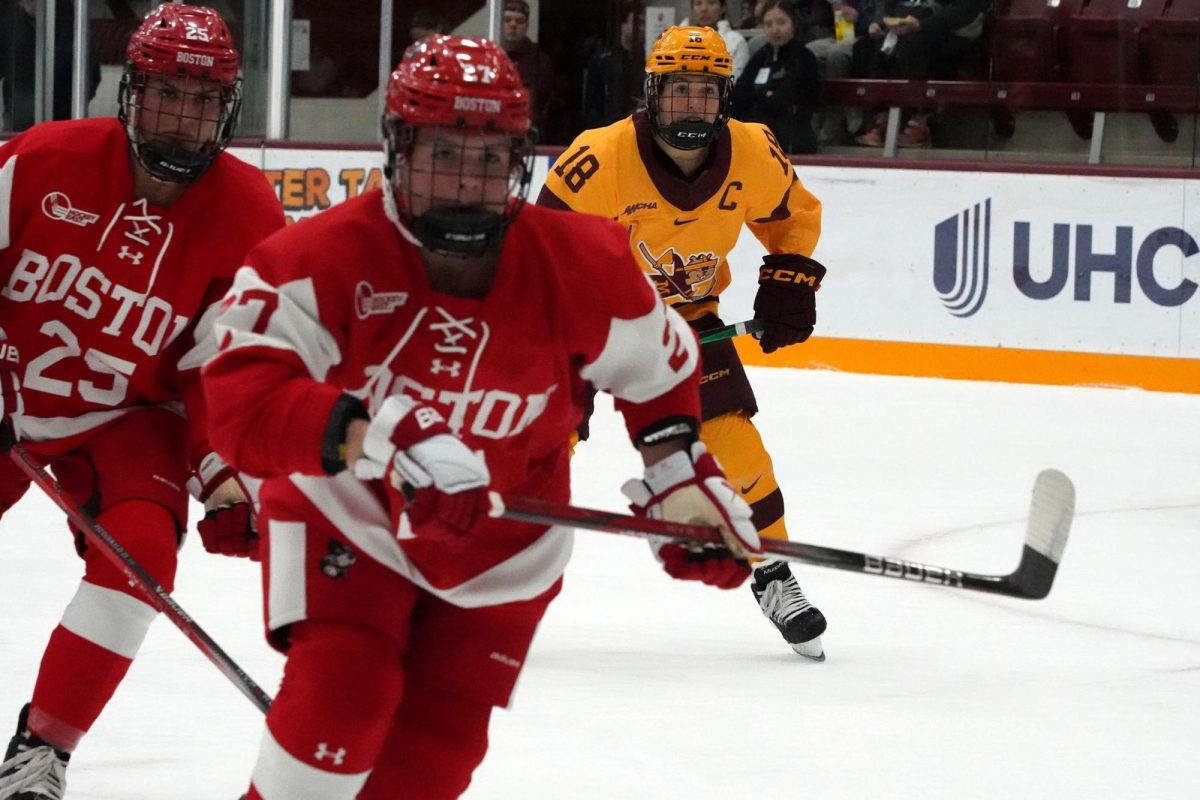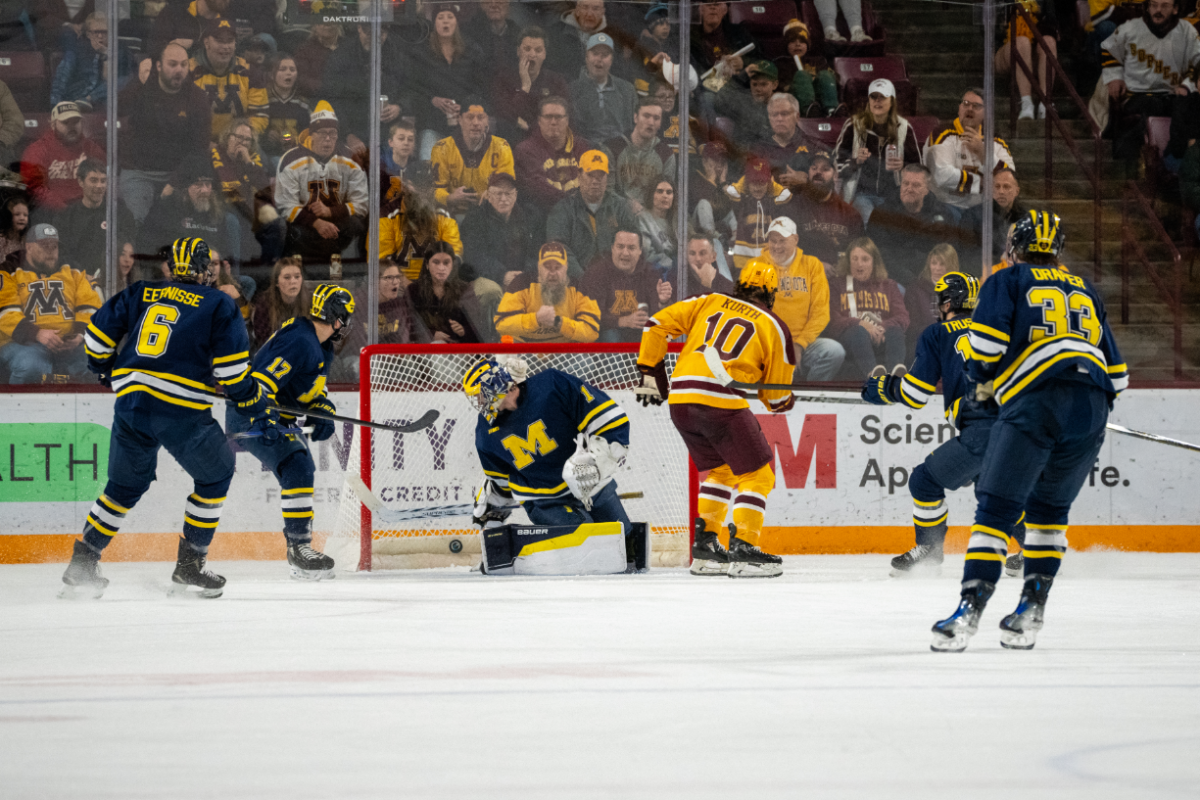What’s in a name? Controversy.
Eligibility and commercialization questions quickly arose when CBSSports.com announced in late July that it will use players’ actual names and likenesses in its college fantasy football leagues.
For the first time, fantasy owners will be able to draft and track college players by name in their leagues. In the past, position labels such as “Minnesota WR” had been used .
The NCAA has sent a letter to CBS Sports on behalf of its student athletes, explaining that the new version of fantasy college football violates an eligibility bylaw.
That bylaw, which the association decided upon in July , states that a student athlete may lose eligibility if their name is used in conjunction with a fantasy sports operation.
The bylaw also says that the player or his or her institution would have to contact the fantasy sports company to have the name and likeness removed.
At its executive committee meeting on Thursday , the association voiced its concerns on the topic.
“We are not pleased and concerned with the direction [fantasy sports] have taken,” NCAA President Myles Brand said in a conference call with reporters.
While the association disagrees with the decision – and Brand said the association will continue to promote its current amateurism model – it might not be up to them.
The U.S. Supreme Court refused to hear a case in June regarding Major League Baseball , which many interpreted as a sign that entities like MLB don’t own the rights to names and statistics.
However, Brand said he isn’t worried about the issue, even if the NCAA doesn’t have control over it.
“Is this a beginning of a firestorm?” he said. “I don’t think so.”
While the NCAA considers its options, the University will send cease and desist letters to companies that use its athletes’ names and likenesses, University Athletics Compliance Director JT Bruett said.
Bruett said that a letter hasn’t been sent to CBS Sports yet, though the athletics department has sent similar letters in the past.
CBS Sports wouldn’t comment on the issue of its new format violating NCAA bylaws, and said the same change might occur in its college basketball fantasy game if the football version is popular.
About 11.7 million unique users visited fantasy football sites in September 2007 , the first full month of professional and college football seasons, according to Nielsen Online.
In other NCAA news
The NCAA also affirmed its controversial stance on alcohol advertising at its Thursday meeting.
It will continue to allow alcohol advertisers to promote products with less than 6 percent alcohol content . One minute of such advertising is permitted per hour of a televised collegiate sporting event.
Athletics directors, school presidents and public interest groups have called for the NCAA to completely block the advertising during broadcasts.
“We tried that one time in our country before and it didn’t seem to work real well,” NCAA executive committee Chairman Michael Adams said, likening an advertising ban to prohibition.


